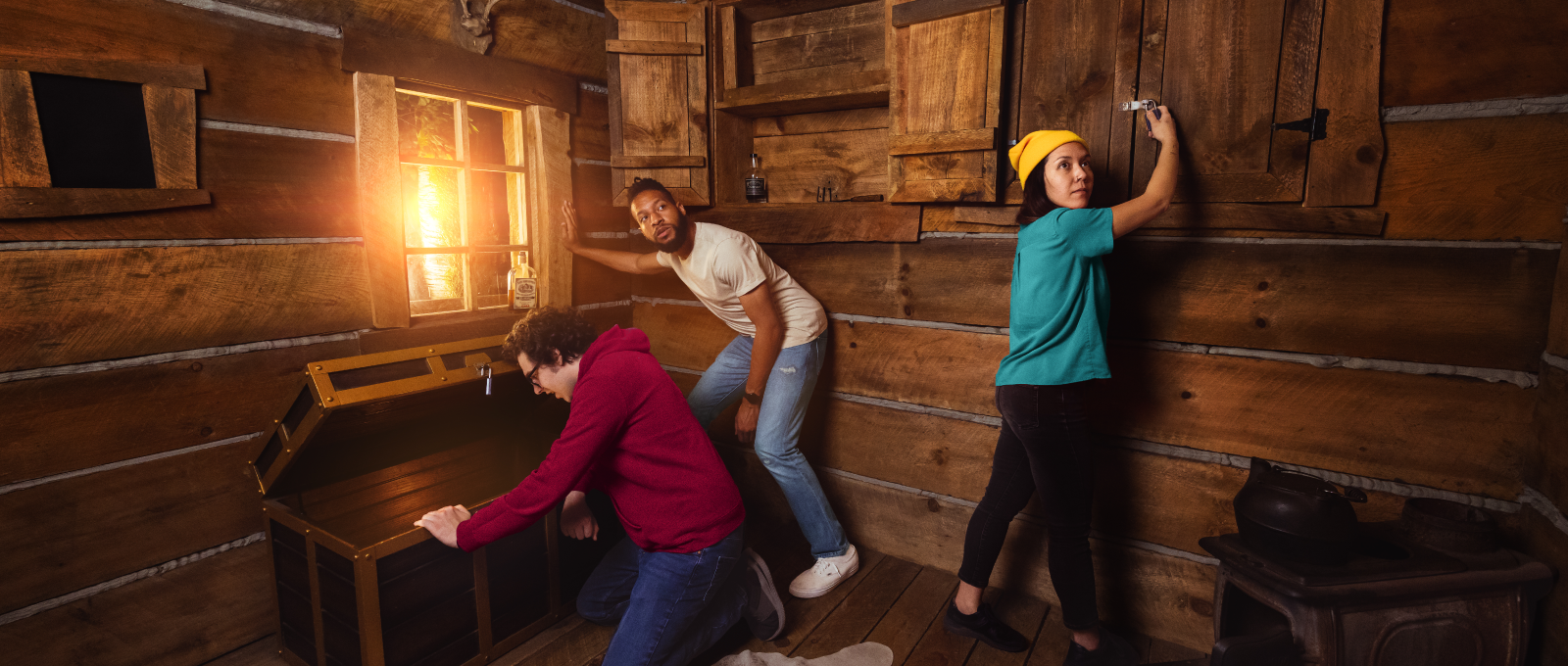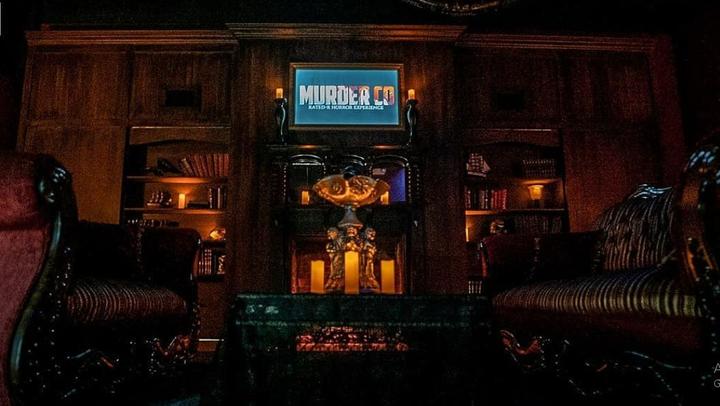Discover the Best Escape Room in Minneapolis-- Reserve Your Experience
Discover the Best Escape Room in Minneapolis-- Reserve Your Experience
Blog Article
Group Methods: Just How to Collaborate Efficiently in a Retreat Area
Teams must proactively pay attention to each participant's insights, appoint duties that align with specific staminas, and preserve routine check-ins to ensure focus and stop redundancy. By fostering a setting that values cohesion and adaptability, groups can considerably increase their efficiency and success rates.
Establish Clear Interaction

To facilitate clear interaction, it is important to designate a main factor of contact for info dissemination. This duty includes summarizing findings and proposed methods to guarantee everybody continues to be on the very same page. In addition, embracing an organized method to conversations can avoid chaotic exchanges. For example, short, focused updates from each employee can keep the group informed without overwhelming them with information.

Assign Roles Tactically
While clear communication sets the structure for effective synergy, assigning functions tactically makes certain that each staff member's strengths are utilized properly. In an escape room situation, the time-sensitive and intricate nature of obstacles requires a well-organized method to job delegation. By recognizing and leveraging private proficiencies, groups can optimize their problem-solving abilities and improve total efficiency.
First, assess the one-of-a-kind skills and attributes of each individual. As an example, somebody with an eager eye for information might master locating covert things, while a logical thinker can be much better matched to addressing puzzles - best escape room. It's equally vital to have a leader that can supervise development, manage the timeline, and make decisive telephone calls when needed. This duty often calls for strong organizational and social abilities.
Second, make sure that duties are adaptable and versatile. As new challenges emerge, the team needs to be able to pivot, reallocating jobs as called for. This adaptability assists preserve momentum and stops traffic jams that might occur because of rigid duty projects.
Inevitably, a critical technique to role task not just makes best use of the strengths of each staff member yet additionally fosters a cohesive environment, driving the team in the direction of an effective getaway.
Use Diverse Skills
Acknowledging and harnessing the varied skills within your team can considerably boost your performance in a getaway space. Each employee brings special staminas to the table, and effectively leveraging these capacities can accelerate analytical and improve overall efficiency. As an example, a group member with solid analytical skills could succeed at figuring out complex codes or patterns, while another with keen empirical capabilities may rapidly detect covert clues that others might neglect.
Encourage team members to articulate their insights and concepts immediately, ensuring that all potential options are taken into consideration. Additionally, assigning tasks that line up with each participant's toughness can avoid bottlenecks and guarantee that progression is continual.
Moreover, diversity in abilities frequently converts to variety in thinking styles, which is indispensable in an escape area setup. While some difficulties may call for rational reasoning and precision, others might take advantage of creative and lateral thinking. By recognizing and leveraging this diversity, groups can address a broader series of difficulties a lot more successfully, thereby boosting their chances of you could check here an effective retreat.
Manage Time Properly

Identify visible challenges and separate tasks based on team participants' toughness, ensuring that nobody is still. This technique can aid keep the group concentrated and protect against time from slipping away undetected.
Furthermore, avoid passage vision. If a problem is taking as well long, rotate team members or carry on to another obstacle, returning later on with fresh point of views. Interaction is vital-- keep every person updated on resolved puzzles and staying tasks to stay clear of redundant efforts.
Finally, use any kind of hints or ideas moderately however strategically - best Full Report escape room. Recognizing when to request aid can conserve valuable time. By adhering to these time administration principles, teams can significantly enhance their possibilities of an effective and satisfying escape room experience
Debrief and Mirror
Reflection is an essential aspect of team growth and renovation in the context of escape areas. Once the difficulty is completed, whether successfully or otherwise, it is vital for the group to participate in a structured debriefing session. This process permits employee to examine their efficiency, recognize toughness, and determine locations for renovation.
Begin the debrief by discussing what went well. Highlight details circumstances of reliable communication, analytical, and collaboration. Identifying these favorable actions enhances them and urges their rep in future difficulties.
Discuss moments of complication, miscommunication, or see this site ineffective methods. Encourage an open and positive dialogue where group members can share their point of views without anxiety of criticism.
Final Thought
In verdict, effective collaboration in a getaway room is based upon clear interaction, strategic duty projects, the effective usage of varied skills, and skilled time administration. By producing a natural and adaptive group environment, the probability of efficiently fixing challenges and accomplishing the objective of escaping the area is significantly improved.
Report this page